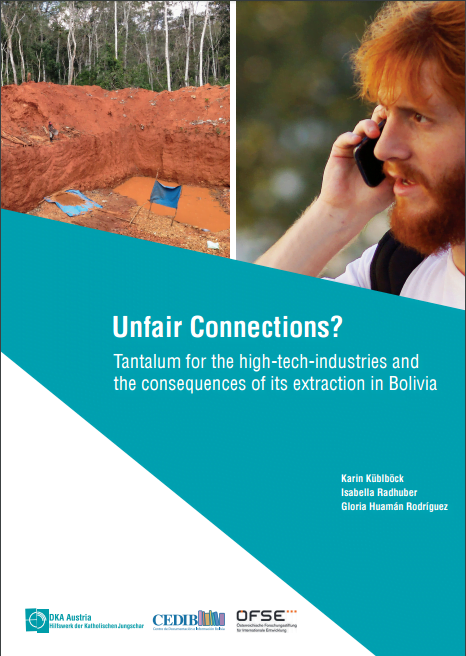The Growing Significance of Tantalum and Its Impact on Bolivia’s Amazon Basin
Twenty years ago, tantalum was a name only familiar to a few from high school chemistry classes. Today, however, this element has gained prominence due to its unique material properties that are crucial to the high-tech industry. Tantalum is now a key component in modern electronics, found in everyday devices like smartphones.
The story of tantalum took a dark turn with the spotlight on coltan, the primary ore containing tantalum. Coltan became infamous for its role in financing armed conflict in the Democratic Republic of Congo. In response, the United States passed the Dodd-Frank Act in 2012, which aimed to curb the use of conflict minerals by mandating greater transparency in sourcing.
However, the quest for tantalum has not ended there. This case study shifts the focus to illegal tantalum mining in Bolivia’s Amazon Basin. Here, tantalum is extracted through illicit small-scale mining operations, often leading to significant environmental and social consequences.
Environmental and Social Impacts of Illegal Tantalum Mining
- Deforestation: Illegal mining operations in Bolivia have led to extensive deforestation of ecologically sensitive areas, such as dry forests in the Amazon Basin. This destruction threatens biodiversity and disrupts the delicate balance of local ecosystems.
- Soil and Water Contamination: The mining process involves harmful chemicals, which have resulted in soil and water pollution. This contamination poses serious risks to both wildlife and local communities.
- Impact on Indigenous Communities: The local indigenous populations have faced severe consequences due to these mining activities. Their traditional livelihoods, rights, and cultural heritage have been undermined by the encroachment of mining operations.
Addressing the Challenges of Tantalum Mining
To combat the lack of transparency in tantalum sourcing and mitigate its adverse effects, several measures can be taken:
- International Regulatory Initiatives: Strengthening global regulations to ensure that tantalum is sourced responsibly and ethically can help reduce the negative impacts of mining.
- Enforcement of National Regulations: Governments in mining regions must rigorously enforce environmental and labor regulations to protect ecosystems and local communities.
- Alternative Income Sources: Developing sustainable economic alternatives for communities affected by mining can help reduce reliance on illegal activities and provide viable livelihoods.
This case study underscores the need for comprehensive strategies to address the environmental degradation and social injustices associated with tantalum mining. By promoting transparency and fostering alternative economic opportunities, we can work towards a more ethical and sustainable approach to tantalum extraction and trade.
